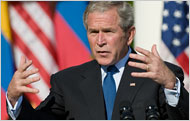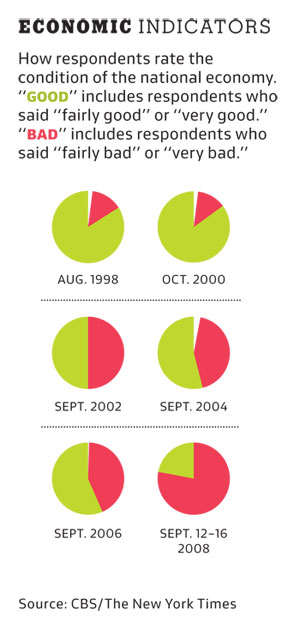At the S.E.C., agency investigations that led to Justice Department prosecutions for securities fraud dropped from 69 in 2000 to just 9 in 2007, a decline of 87 percent, the data showed.
“I think the S.E.C. has completely fallen down on the job,” said Jacob H. Zamansky, a New York lawyer who specializes in representing investors who have lost money in fraud cases. “They’re more interested in protecting Wall Street than protecting investors. The new administration has to do a complete overhaul of the S.E.C.”
Critics of the S.E.C. also attribute the decline in criminal cases to shortages in staffing and resources in the agency’s investigative units, policy changes that have reduced the authority of investigators to pursue cases on their own, and a “revolving door” phenomenon that has led investigators to leave the agency for high-paying jobs in the industry that they once helped to monitor.
“It’s been awful,” Sean Coffey, a former fraud prosecutor in New York who now represents investors in securities litigation, said of the S.E.C.’s recent enforcement record. The agency has “neutered the ability of the enforcement staff to be as proactive as they could be. It’s hard to square the motto of investor advocate with the way they’ve performed the last eight years.”
In the last few years, he said, “the administration has been sending the message that we’re going to loosen the binds on the market to compete in the global marketplace, and they’ve pulled the throttle back on prosecutions because it wasn’t politically necessary anymore.”
Source: "Federal Cases of Stock Fraud Drop Sharply" By ERIC LICHTBLAU - NY Times - December 24, 2008
After decades of deregulation and free-market fealty, antiregulation, small-government Republicans are putting the government in control of a big chunk of the financial sector.
And voters might well wonder why perhaps a half-trillion dollars — about the same amount spent so far in Iraq — is suddenly available to help Wall Street when promises to address issues like health care insurance have gone largely unkept for years.
Source: "Dazed Capital Feels Its Way, Eyes on Election" By JACKIE CALMES - NY Times - September 19, 2008
Finally, Americans need to be told a more fundamental truth: This crisis is the result of a willful and systematic failure by the government to regulate and monitor the activities of bankers, lenders, hedge funds, insurers and other market players. All were playing high-stakes poker with the financial system, but without adequate transparency, oversight or supervision.
The regulatory failure, in turn, was grounded in the Bush administration’s magical belief that the market, with its invisible hand, works best when it is left alone to self regulate and self correct. The country is now paying the price for that delusion.
Source: "Hard Truths About the Bailout" - NY Times - September 19, 2008

Bush explains why this is not the time for "finger pointing."
Source: NY Times

Source: NY Times - 9/28/08